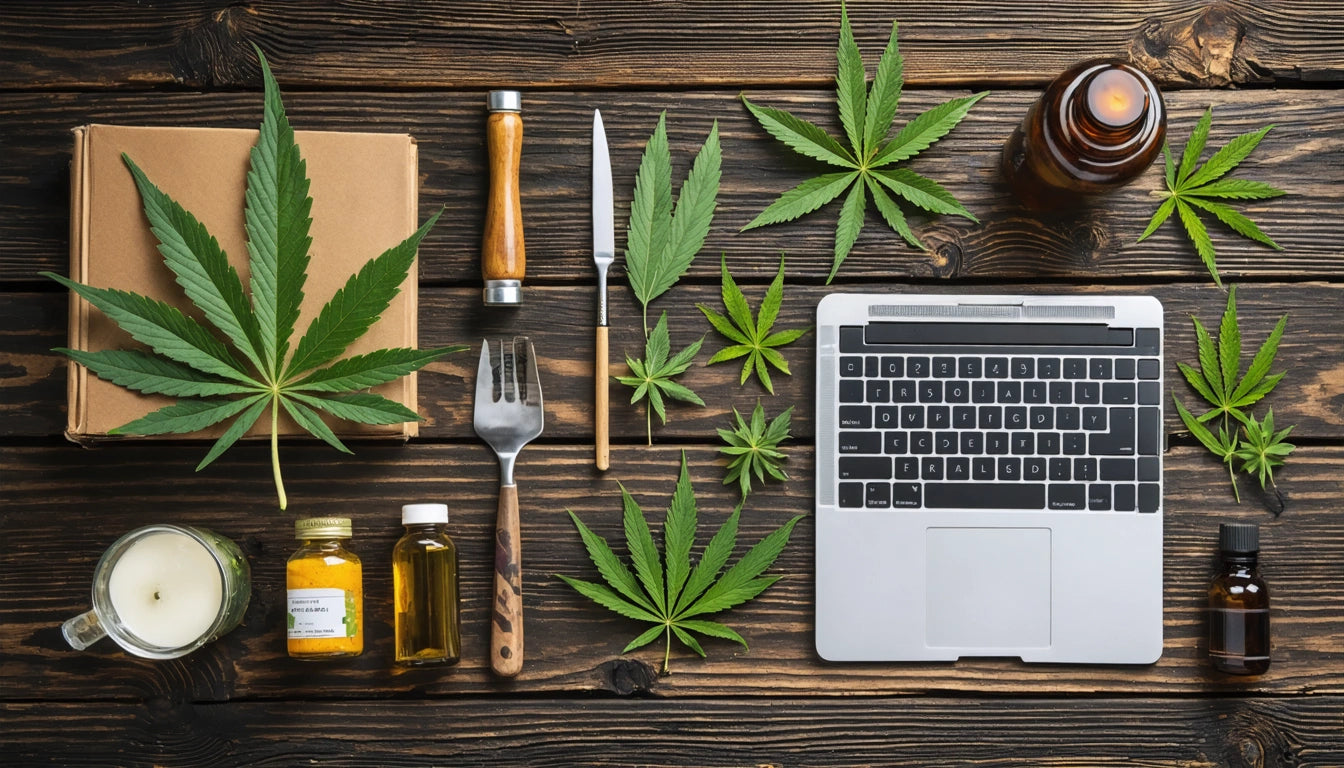Table of Contents
- Dopamine Basics: Understanding the Brain's Reward System
- The Cannabis-Dopamine Connection: How THC Affects Neurotransmitters
- Short-Term Effects of Cannabis on Dopamine Levels
- Long-Term Implications of Cannabis Use on Dopamine Function
- Medical Applications and Therapeutic Potential
- Individual Factors That Influence Cannabis Effects
- Future Research Directions and Clinical Implications
Does Weed Increase Dopamine Levels? Exploring the Effects of Cannabis on Brain Chemistry
Cannabis use has been linked to various effects on brain chemistry, particularly regarding neurotransmitters like dopamine. As marijuana legalization expands, understanding how cannabis interacts with the brain's reward system becomes increasingly important for both recreational users and medical professionals.
Dopamine Basics: Understanding the Brain's Reward System
Dopamine is a neurotransmitter primarily associated with pleasure, motivation, and reward. It plays a crucial role in how we experience satisfaction from various activities, from eating delicious food to achieving personal goals.
The brain's dopamine system consists of several pathways:
- The mesolimbic pathway (reward pathway)
- The mesocortical pathway (cognition and executive function)
- The nigrostriatal pathway (motor control)
- The tuberoinfundibular pathway (hormone regulation)
When functioning normally, these pathways help regulate mood, motivation, and various cognitive functions. Disruptions in dopamine signaling have been linked to conditions like Parkinson's disease, addiction, and certain mood disorders.
The Cannabis-Dopamine Connection: How THC Affects Neurotransmitters
To answer the question "does weed increase dopamine," we need to examine how cannabis interacts with the brain's endocannabinoid system. THC, the primary psychoactive compound in cannabis, binds to cannabinoid receptors (CB1) that are prevalent throughout the brain, including regions rich in dopamine-producing neurons.
When THC activates CB1 receptors, it can indirectly influence dopamine release. Research suggests that THC stimulates dopamine neurons, leading to increased dopamine release in the brain's reward centers, particularly the nucleus accumbens.
Research indicates that THC can increase dopamine release by disrupting the normal inhibitory control over dopamine-producing neurons, resulting in higher dopamine levels in the brain's reward pathway.
Short-Term Effects of Cannabis on Dopamine Levels
The immediate effects of cannabis on dopamine levels can help explain many of the drug's short-term psychological effects:
Euphoria and Pleasure
The temporary surge in dopamine contributes to the euphoric "high" that many users experience. This answers the question "does weed give you dopamine" - yes, it does trigger dopamine release, particularly in the brain's reward centers.
Altered Perception and Mood
Dopamine fluctuations contribute to changes in mood and perception commonly reported by cannabis users. These can range from relaxation and happiness to, in some cases, anxiety or paranoia.
Increased Appetite
The "munchies" effect may be partially related to dopamine's role in food reward. When cannabis increases dopamine, it can enhance the pleasure derived from eating, stimulating appetite.
Long-Term Implications of Cannabis Use on Dopamine Function
While cannabis does increase dopamine in the short term, chronic use may lead to adaptations in the dopamine system:
Tolerance Development
Regular cannabis use can lead to tolerance, where more of the substance is needed to achieve the same dopamine-related effects. This occurs as the brain adapts to frequent cannabinoid stimulation.
Potential Downregulation
Some research suggests that long-term, heavy cannabis use might lead to downregulation of dopamine receptors or reduced dopamine synthesis. This could potentially contribute to motivational issues in some chronic users.
For enthusiasts who regularly consume cannabis, efficient preparation tools like electric grinders can help maintain consistent dosing, which may be important for managing these potential long-term effects.
Medical Applications and Therapeutic Potential
The relationship between cannabis and dopamine has important implications for medical applications:
Parkinson's Disease
Since Parkinson's disease involves dopamine deficiency, there's interest in whether cannabis can help. Some research suggests that cannabis may provide symptomatic relief for Parkinson's patients, potentially by affecting dopamine availability or function.
Mood Disorders
The effects of cannabis on dopamine may explain its complex relationship with mood disorders. While some users report relief from depression symptoms, others experience worsening symptoms with long-term use. This variability may relate to how cannabis affects individual dopamine systems.
Individual Factors That Influence Cannabis Effects
The answer to "does marijuana affect dopamine" isn't one-size-fits-all. Several factors influence how cannabis affects dopamine function in individuals:
- Genetics and individual neurochemistry
- Frequency and duration of cannabis use
- Cannabis strain and THC/CBD content
- Method of consumption
- Pre-existing conditions affecting dopamine function
These variables help explain why some people experience significant mood enhancement from cannabis while others may experience adverse effects like anxiety or amotivation.
Future Research Directions and Clinical Implications
As cannabis legalization expands, research into its effects on brain chemistry continues to evolve. Future studies will likely provide more nuanced answers to questions like "does weed increase dopamine or serotonin" and "how much dopamine does weed release."
Understanding these mechanisms has important implications for:
- Developing targeted cannabis-based medications
- Identifying individuals who might benefit from or be harmed by cannabis use
- Creating harm reduction strategies for recreational users
- Better understanding addiction mechanisms
While current evidence confirms that cannabis does affect dopamine systems, the complexity of these interactions and their long-term implications requires continued scientific investigation. For those using cannabis either recreationally or medicinally, awareness of these neurochemical effects can contribute to more informed consumption decisions.











Leave a comment
All comments are moderated before being published.
This site is protected by hCaptcha and the hCaptcha Privacy Policy and Terms of Service apply.